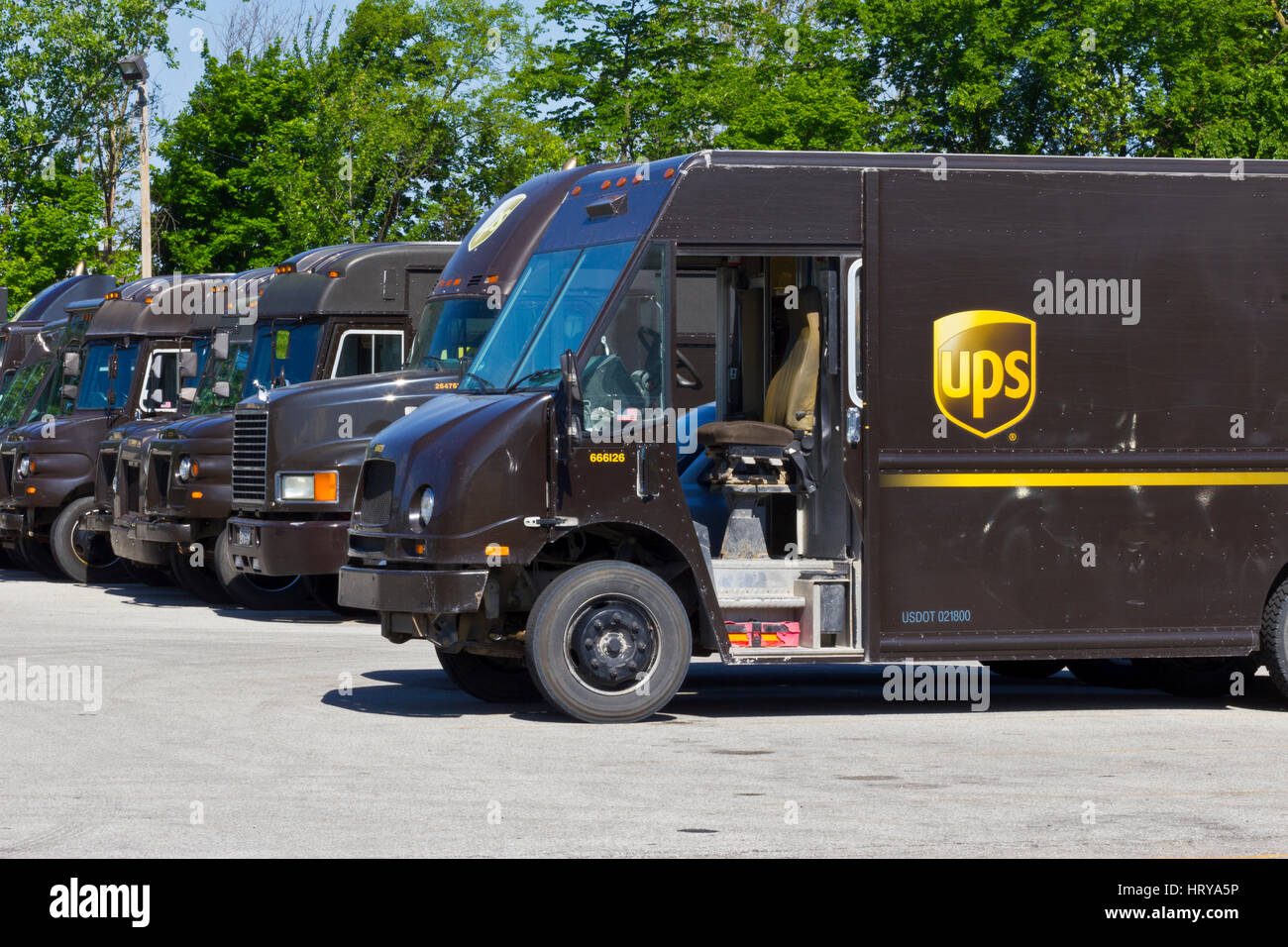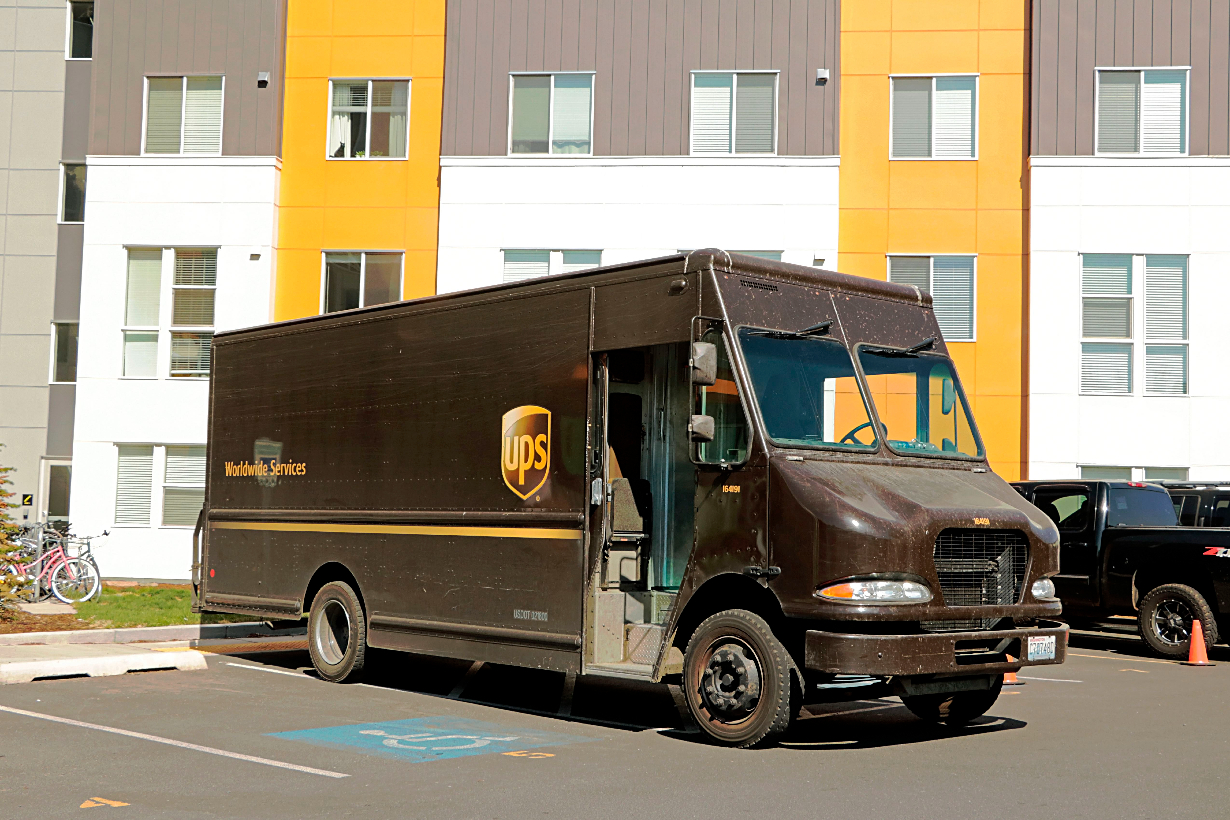UPS Layoffs Amazon: Understanding The Evolving Logistics Picture
The logistics world, you know, it's a bit like a giant, intricate dance, with many partners moving around. Lately, there's been quite a bit of chatter, a kind of low hum, about the relationship between big players like UPS and Amazon, and what that might mean for jobs. It's a topic that, you know, really gets people thinking, especially when we consider how much our everyday lives rely on packages getting from one place to another.
For a while now, there's been talk, and it's quite natural, about the potential impact of major shifts in how goods get delivered. When you think about companies like Amazon, they have really changed how we shop, and that, in turn, changes how things move through the supply chain. This means, in some respects, that companies like UPS, who are so central to shipping, are always adapting to these big changes.
So, the idea of "UPS layoffs Amazon" really points to a broader conversation about the future of work in a very important industry. It's about how these huge companies interact, and what those interactions could mean for the people who work hard every day to make sure our packages arrive. It's a complex picture, and we're going to explore some of the parts that make it up, looking at how things are shifting and what that might bring.
- Harley West Bio Wikipedia Age Height Boyfriend
- Young Thug S Children Know Them All
- Is Tyler Langford Based On A Real
- Ciara Ethnicity Nationality Race Family Body Measurements
- Where Is Ross Caruso Going After Leaving
Table of Contents
- The Changing Relationship Between UPS and Amazon
- UPS's Operational Strengths and Adaptability
- Factors Influencing Employment in Logistics
- The Future of Delivery Jobs and the Broader Economic Picture
- Frequently Asked Questions (FAQ)
- Conclusion
The Changing Relationship Between UPS and Amazon
The connection between UPS and Amazon has, you know, been a very big deal for a long time. UPS has been a key partner for Amazon, helping to deliver countless packages to homes and businesses all over the place. For many years, this was a mutually beneficial arrangement, with Amazon relying on UPS's vast network and UPS handling a significant volume of Amazon's shipments. It's almost like they were two sides of the same coin in the world of online shopping.
However, as Amazon has grown, it has, in a way, started to build out its own delivery capabilities. You see, they have invested a lot in their own planes, trucks, and even delivery vans. This move, it's pretty clear, is about Amazon wanting more control over its supply chain, and perhaps, too, to manage costs more closely. This shift has, naturally, led to some questions about how much business UPS will continue to do with Amazon, and what that means for both companies.
This evolving dynamic is a rather big topic of discussion within the logistics community. It highlights how quickly things can change when you have such large, influential companies involved. The question of how much volume UPS still handles for Amazon, and what that means for staffing levels at UPS, is something many people are, you know, keeping a close eye on. It's a situation that truly shows how interconnected the modern economy is.
- Kanwal Rekhi Net Worth Income Salary Earnings
- Who Is Jesse Watters Wife Emma Digiovine
- Justin Rutter Found Or Missing Is He
- Xochitl Gomez Siblings Does She Have Any
- Bishop Briggs Husband Did Not Propose Her
UPS's Operational Strengths and Adaptability
Despite the shifts in client relationships, UPS, you know, remains a really powerful force in global shipping. They have built up an incredible set of tools and services over many, many years that make them a go-to choice for businesses and individuals alike. It's quite something when you think about the sheer scale of their operations and how they manage to keep things moving so smoothly. They have, after all, been doing this for a very long time, and they've learned a lot.
My text shows, for instance, how much thought goes into their technical capabilities. Things like the `ups worldship 2016` system, which allowed for creating application fixes, or their `ups api support` that gives the same response for testing and sandbox environments, show a deep commitment to making their services work well for developers. This kind of detail, you know, points to a company that's built for serious, large-scale operations. They are always, it seems, looking for ways to improve how their systems connect with others.
They also have, like, a really strong focus on providing clear information. The mention of `appendix h of the tracking web service developers guide (december 31, 2012)` shows their dedication to documentation, making it easier for people to use their services. This level of detail, it's pretty impressive, helps businesses integrate UPS services into their own systems, which is very important for smooth operations. They truly want to make it simple for others to work with them.
Tracking and Customer Experience
When it comes to keeping tabs on packages, UPS has, you know, always been a leader. The ability to `track one or multiple packages with ups tracking` is something we all rely on. It's so comforting to be able to `use your tracking number to track the status of your package`. This feature, it's just, so fundamental to the shipping experience today. People really expect to know where their items are at any given moment, and UPS provides that with great clarity.
They've also, apparently, `recently upgraded our online tracking experience, so now you have` even better ways to see your package's journey. This commitment to improving the customer experience is, in a way, a big part of their strength. It shows they are listening to what people want and are constantly working to make things easier and more transparent. Knowing where your package is, that's a big deal for peace of mind, isn't it?
Developer Tools and Integration
For businesses, especially those that ship a lot, integrating directly with UPS's systems is, you know, incredibly important. My text mentions, for example, creating an application with a `client id and a client secret` in the `ups developer portal`. This means developers can, like, build their own tools that talk directly to UPS.
Then there's the process of obtaining an `oauth token` to `access their other` services. This is all about secure and efficient communication between different computer systems. The question about `where can i find the code parameter used in the generate token method` and its description as `authorization code from the ups login system` really highlights the technical depth available. This kind of robust API support is, actually, what allows big businesses to automate their shipping processes, making them very efficient.
And when it comes to the final stages of shipping, like `where having validated everything, ups return the actual shipping label to me`, it shows a complete, end-to-end system. This kind of integration is very valuable for businesses, as it streamlines their operations and reduces manual work. It's a pretty big part of what makes UPS such a vital partner for so many companies, large and small.
Convenience for Shippers and Receivers
UPS also understands, you know, that not everyone can be home for a delivery or has a big warehouse. That's why `ups access point® locations are convenient for customers looking for a quick and simple stop in any neighborhood`. These locations, they're really helpful for people who need flexibility in picking up or dropping off packages. It's a way of making shipping fit into people's busy lives, which is a very thoughtful approach.
For businesses that ship frequently, the option to `set up a regular ups pickup` is, like, a huge time-saver. You `need a ups account` to do this, and you can `create one here, or learn more about the discounts and` other benefits. This kind of service is, arguably, what makes UPS so attractive to companies that need consistent, reliable shipping solutions. They make it easy to manage the flow of goods, which is pretty essential for any business.
And for anyone just wanting to get an idea of costs, the `ups' shipping calculator estimates the time and cost of delivery based on the destination and service`. You can `get a quote for your next shipment` very quickly. This transparency and ease of planning are, you know, incredibly helpful for budgeting and logistics planning. It just makes the whole process feel much more manageable, for everyone.
Global Reach and Efficiency
UPS's promise to `discover fast, reliable global shipping and logistics solutions` really speaks to their immense network. They invite you to `explore our shipping and tracking services and streamline your supply chain today`. This isn't just about local deliveries; it's about connecting businesses and people across continents. Their ability to `ship and track domestic and international deliveries` makes them a truly global player, one of the `largest and most trusted global shipping and logistics companies` out there.
They also encourage you to `experience better online shipping with ups`, promising to `send and deliver packages faster and easier than ever`. You can `quote, pay, and get labels on ups.com`, making the whole process very straightforward. For businesses that `need to ship packages across the world`, UPS is positioned to `be your logistics partner`. They really want you to `explore our services and simplify your shipping process`, which is pretty much their core mission.
Factors Influencing Employment in Logistics
The logistics sector, like many others, is, you know, always changing. There are a few big things that tend to shape employment within it. One of the most obvious is the overall health of the economy. When people are buying more, more things need to be shipped, and that usually means more jobs. When things slow down, the opposite can, sadly, be true.
Another very significant factor is technology. We're seeing more and more automation in warehouses and sorting facilities. Things like robotic arms and automated guided vehicles are, apparently, becoming more common. While these technologies can make operations more efficient, they can also, in some respects, reduce the need for certain types of manual labor. This doesn't always mean fewer jobs overall, but it often means a shift in the kinds of skills that are needed, which is a big adjustment for many.
Then there's the shift in how major clients operate. When a very large customer, like Amazon, decides to handle more of its own deliveries, it naturally has an impact on its partners. This kind of strategic move by a big player can, arguably, lead to adjustments in staffing levels at the companies that used to handle that volume. It's a bit like a ripple effect through the industry, where one big change can influence many smaller ones. So, in a way, it's not just about one company, but about the whole system.
The Future of Delivery Jobs and the Broader Economic Picture
Looking ahead, the future of delivery jobs is, you know, a really interesting topic. While there are certainly discussions about how big clients like Amazon might affect traditional carriers, it's also true that the overall demand for package delivery continues to grow. More and more people are shopping online, and that means more packages need to move. This underlying trend is, actually, a very strong positive for the logistics industry as a whole.
Companies like UPS are, you know, constantly adapting. They are investing in new technologies, improving their networks, and finding new ways to serve different kinds of customers. They are also, like, very focused on efficiency and making sure they can handle whatever the market throws at them. The robust systems described in my text, from the developer portal to the shipping calculator, show a company that's built for the long haul, ready to take on new challenges.
The broader economic picture also plays a very big role. Global trade, consumer spending, and even things like fuel prices can all influence how many packages are shipped and, consequently, how many people are needed to move them. So, while discussions about "UPS layoffs Amazon" are certainly valid and important, it's also important to remember that the logistics world is incredibly dynamic, with many moving parts. It's a field that, truly, requires constant evolution and smart thinking. To learn more about how global economic trends affect logistics, you could check out reports from organizations like the World Trade Organization.
Frequently Asked Questions (FAQ)
Are UPS layoffs directly caused by Amazon's delivery network?
Well, the relationship between UPS and Amazon is, you know, changing as Amazon builds its own delivery capabilities. While this shift can influence the volume of packages UPS handles for Amazon, it's a bit more complex than a direct cause-and-effect for layoffs. Many factors, like overall economic conditions and UPS's strategies with other clients, also play a part.
How does UPS plan to stay competitive with Amazon's growing logistics?
UPS, you know, focuses on its vast global network, advanced technology, and a wide range of services for all types of customers, not just big ones. As my text shows, they offer robust tracking, developer tools, convenient access points, and efficient pickup services. These capabilities, in a way, help them remain a very strong player in the market, serving a diverse client base.
What does the growth of e-commerce mean for logistics jobs generally?
The growth of online shopping means, like, a huge demand for package delivery. While there might be shifts in how jobs are structured due to automation or changes in client relationships, the overall need for people to manage, sort, and deliver packages remains very high. It just means the roles and skills required might, you know, evolve over time. Learn more about logistics trends on our site, and link to this page here.
Conclusion
So, when we talk about "UPS layoffs Amazon," it's really about looking at a much bigger picture. It's about how two very large companies interact, how the logistics industry is changing, and what that means for the people who work in it. UPS, with its very deep operational strengths and its long history of adapting, is clearly a company that understands how to navigate these shifts. They have, you know, built a system that's designed to be reliable and efficient, no matter what.
- Meet Olivia Palermo Parents Douglas Palermo Lynn
- Wait A Minute Could Gina And Mack
- Who Is Rogel Lazaro Aguilera Mederos Wife
- Where Is Ross Caruso Going After Leaving
- Who Is Sarah Jindra S Husband Brent

UPS Logo, symbol, meaning, history, PNG, brand

Ups Logo Stock Photos & Ups Logo Stock Images - Alamy

Do UPS Trucks Have Air Conditioning?